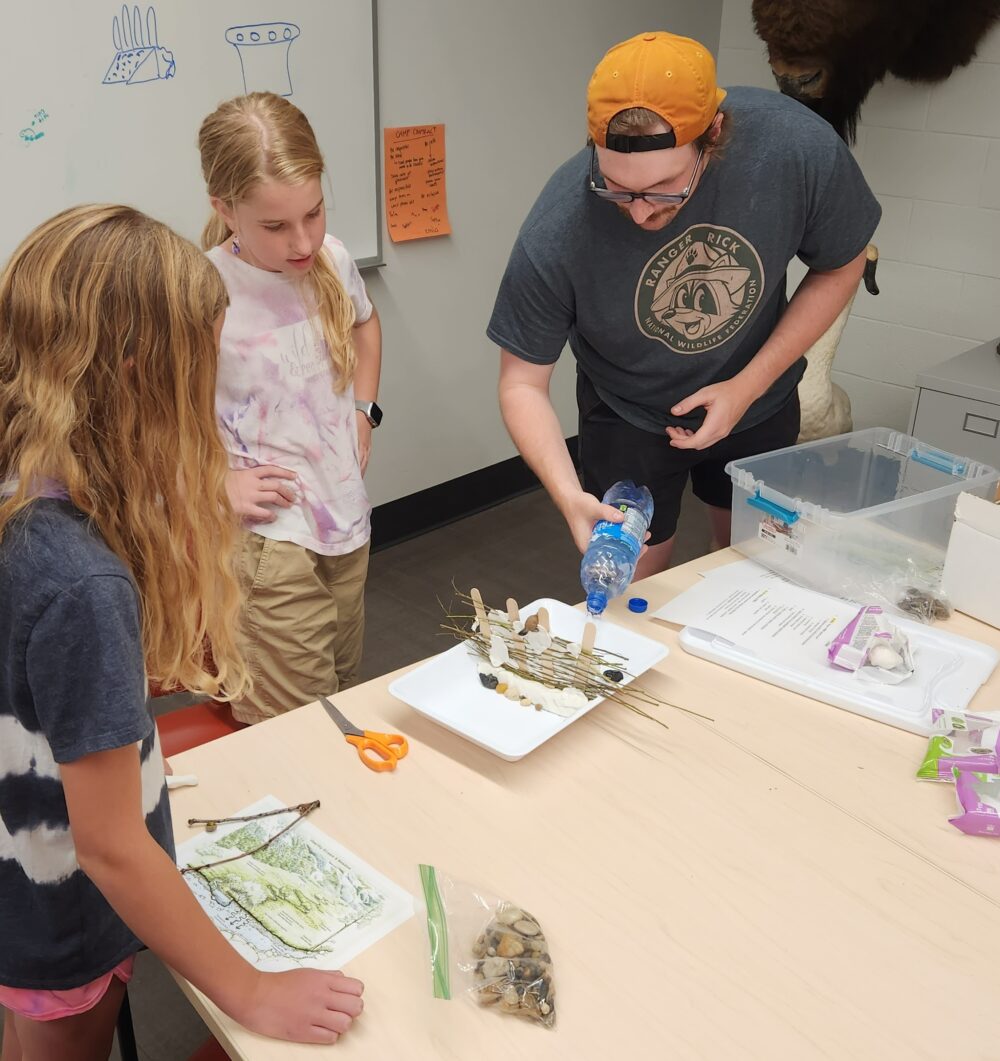We have much more to do and your continued support is needed now more than ever.
7 Reasons Outdoor Play Does A Body Good
Guest post by Carol Torgan, Ph.D. This article was reviewed by Dr. Joshua Rotenberg, a Texas pediatrician and neurologist.
 We all have an innate drive to run and explore and discover our world through play. Watch the animals around you, especially the young ones, and you’ll find squirrels tussling and dogs chasing and horses cavorting.
We all have an innate drive to run and explore and discover our world through play. Watch the animals around you, especially the young ones, and you’ll find squirrels tussling and dogs chasing and horses cavorting.
Like all animals, humans need lots of physical activity for their bodies to develop properly.Unfortunately, kids sometimes get distracted by television and computer screens, or parents worry that it’s too hot or too cold outside to let kids do what they do best: run around, explore, and let their bodies move.
Here are seven top reasons outdoor play is great for your child’s health — as well as some animal trivia, just for fun:
1. Healthier heart
Exercise strengthens your child’s cardiovascular system, reduces risk for heart disease, and helps to control blood pressure and cholesterol levels.
Did You Know? A typical resting heart rate for humans is about 60 to 80 beats per minute. Heart rate is related to the size of an animal: Small animals have faster heart rates than large ones. The resting heart rate of a canary is about 1,000 beats per minute, a hamster’s is about 450 beats per minute, and an elephant’s is about 30 beats per minute.
2. Buffed-up bones
Regular physical activity helps maintain bone density. Your child’s bone health in old age will be determined in part by the bone density formed during adolescence.
Did You Know? The largest bone in the human body is the thigh bone, or femur, which averages about 19 inches long in the adult male. Scientists recently discovered the femur of a dinosaur that is over six feet long!
3. Sharper eyesight
Children who spend more time outside are less likely to become nearsighted. The reasons aren’t yet known, but they may be linked to sunlight exposure or distance viewing.
Did You Know? While we often say someone is “as blind as a bat,” bats aren’t really blind. Many types of these flying mammals echolocate (use sounds to locate objects), but all can still see and some can see quite well.
4. Stronger muscles
Regular activity helps maintain and strengthen your child’s muscles.
Did you know? The largest muscle in our body is the gluteus maximus, or butt muscle. Humans have larger “glutes” than chimpanzees and gorillas. This muscle is barely used for walking, but it is used extensively during running and keeps us from falling forward onto our faces.
5. Better blood sugar
Regular physical activity helps your child use glucose (sugar) as an energy source and improves the body’s ability to use insulin. This lowers the risk for developing Type 2 diabetes, which develops when blood sugar is too high.
Did You Know? Hummingbirds can visit up to 1,500 flowers per day, consuming half of their weight in sugar. They need the energy to fuel their aerial antics: their wings can beat up to 200 times per second.
6. Leaner body
Regular activity helps your child burn calories and maintain an appropriate body weight. A little fat is good, but too much is very bad and can increase your child’s risk for numerous conditions, such as diabetes.
Did You Know? Animals that hibernate store extra fat in order to have a source of energy during the winter. Bears may lose 15-30 percent of their body weight during hibernation, and during this time they typically do not eat, drink, poop, or pee.
7. Improved well-being
Exercise stimulates various brain chemicals that have proven to decrease symptoms of depression and anxiety and may cause kids to have more self-confidence and self-esteem. Regular outdoor activity can help your child to stand up tall and have a better outlook on life.
Did You Know? How about this for standing tall? Giraffes are the tallest land animals. Their neck can be about 6 feet long and they weigh about 600 pounds.
The bottom line:
Children should get an hour or more of moderate- or vigorous-intensity aerobic physical activity every day. Take a lesson from nature to nurture your child!





















